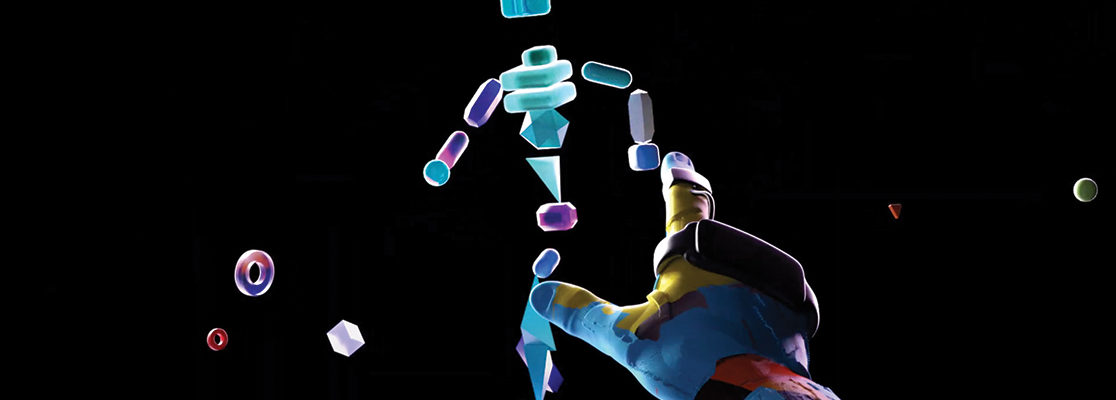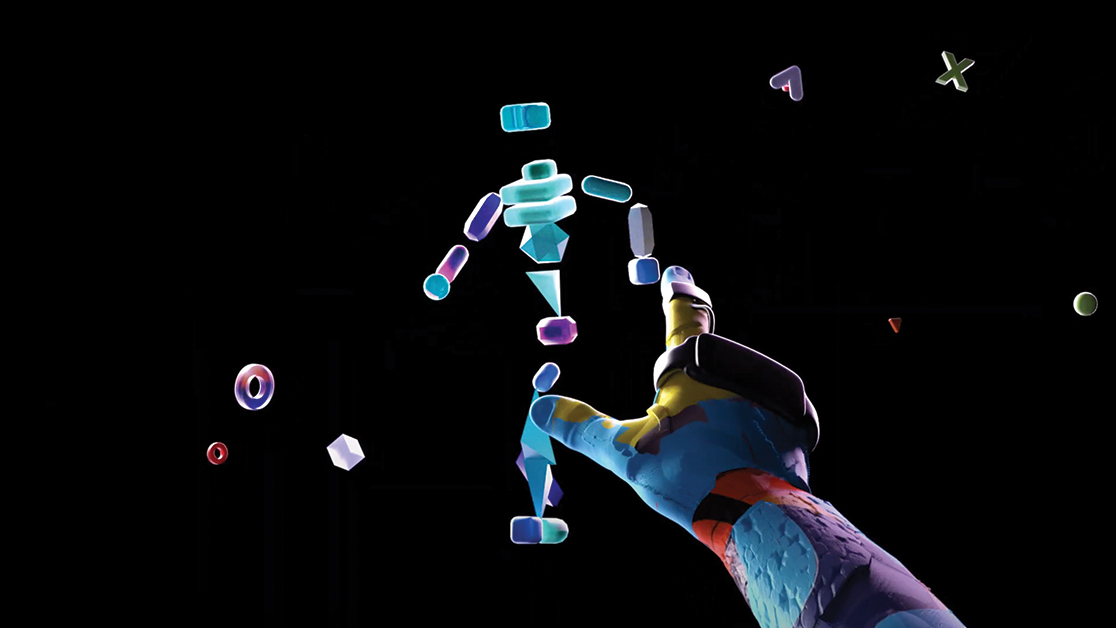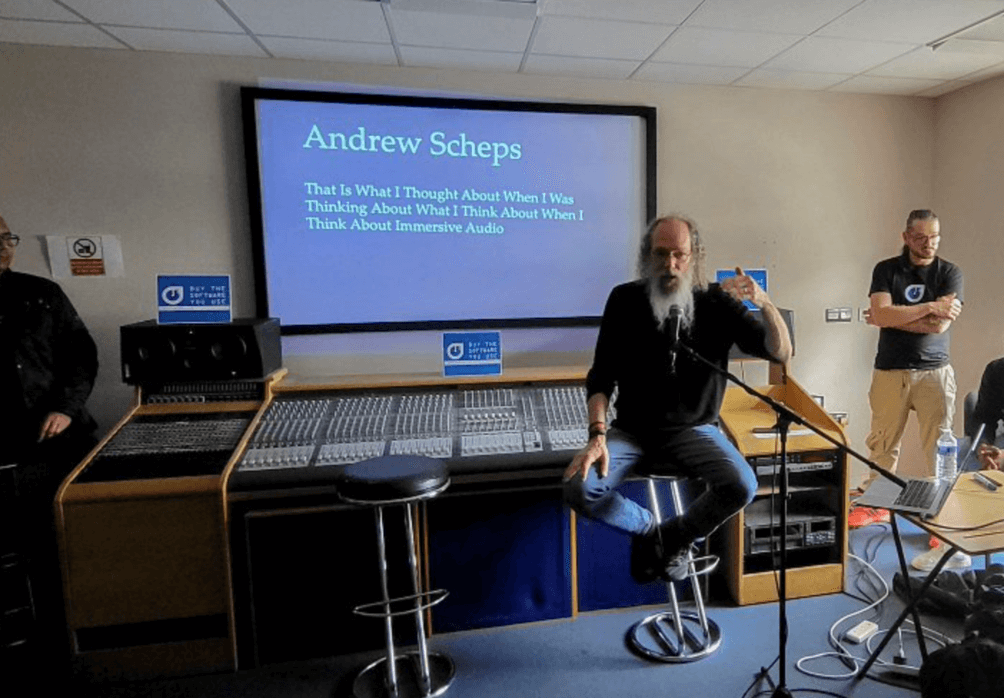As part of IMSTA Fest held at our London campus, Andrew Scheps joined a number of industry experts, including Jonny Amos and Jake Gosling, to share his insights and advice on making music and navigating the industry.
Andrew’s career in music production is unrivalled, winning Grammy Awards for his work on a diverse range of records including the Red Hot Chili Peppers‘ Stadium Arcadium and Adele‘s 21.
His talk explored the world of immersive audio alongside his advice for aspiring engineers and producers.
Check out some of his insights from the talk in our blog below.
If you’re interested in learning more about our Audio Production courses, then get in touch with our team now.
Be open to new sounds
The first thing I ever heard that made me realise how records were different to just a band performing was Revolver by the Beatles – particularly the track, Tomorrow Never Knows. I was probably about nine at the time and it totally blew my mind.
Be as nice as possible
Although learning the tech so you can be creative in the moment is super important, working in a studio involves interacting with other humans.
One of the most important things is to be somebody that people want to be in a room with. This goes a long, long way.
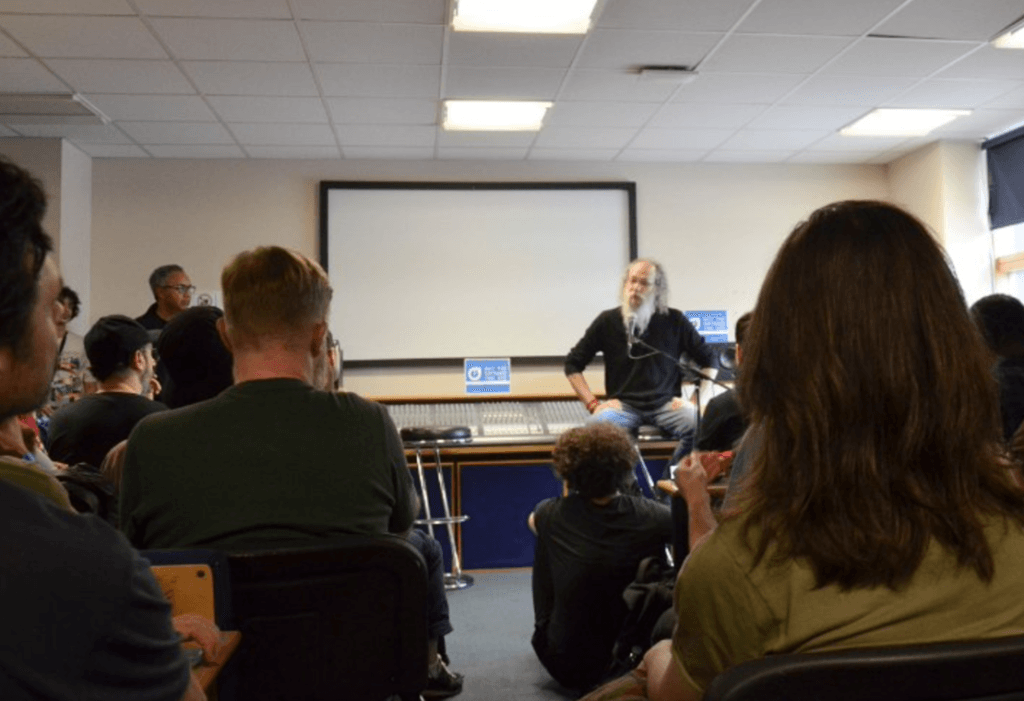
No one cares what gear you use
As a producer or engineer, it’s important to remember that most listeners don’t care what gear you used, how long a track took you, the dynamic range or the speakers you own. They only care that when they hit play, they want to hear that song again.
All the tech you learn is so you can make the music people want to listen to again and again.
I’m not a fan of ‘best practices’ although you do need to know the rules to break them – otherwise you’re just ‘doing things’. But if you can work on something and you’re not the only one who likes the results, then you’re winning.
Get to grips with the music business alongside your core studio skills
The one thing I wish I’d spent time understanding is music publishing, it’s a mystery to me, a black art.
I urge anyone entering the industry now to study the business side. Everything used to be siloed, but now you have to do everything as an artist, producer or engineer – so make sure you understand parts of the industry outside of your role.
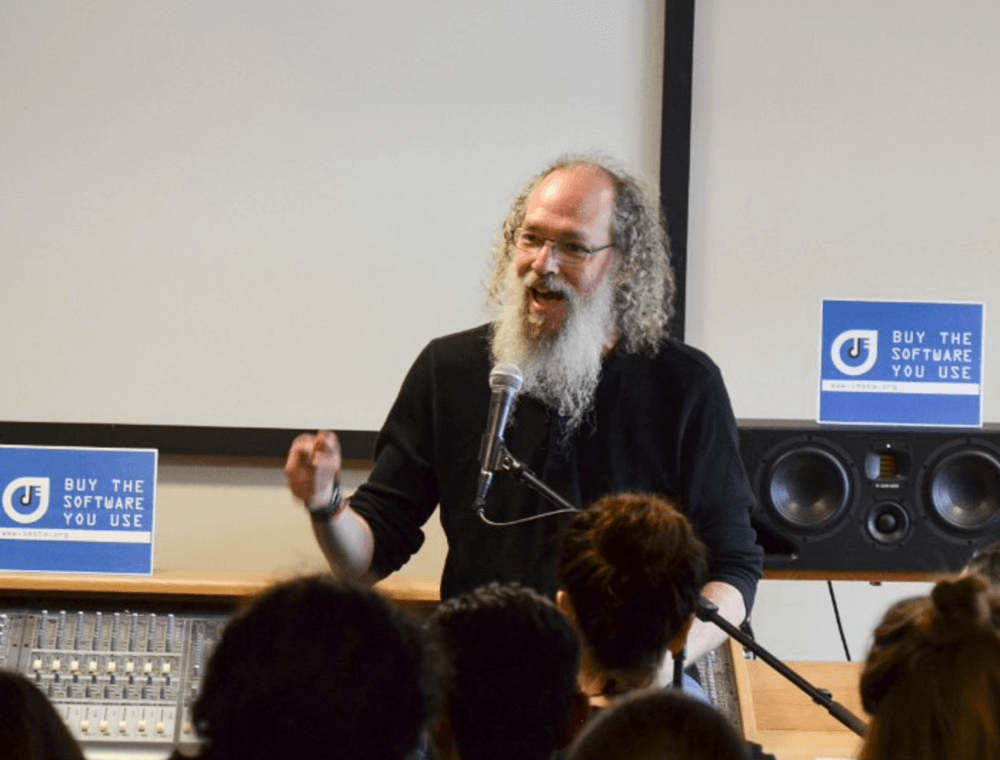
Things are getting better as regards gender imbalance in the studio … slowly
The music industry has been a misogynistic place to work for a long time, especially in the traditional studio environment
In the past, it really helped to be someone like Sylvia Massy or Trinia Shoemaker to kick ass. But being tough shouldn’t be a prerequisite. Things are slowly getting better, and there have always been incredibly talented producers and engineers like Syliva and Trina as well as relative newcomers like Catherine Marks and Marta Salogni. Make sure you get to know Marta, she’s an incredible engineer, she did the second and third Black Midi records and the sounds on those albums are just insane.
Everything to do with mixing is making people think they are hearing something that they aren’t
You might want listeners to think they are in a space, maybe the band is in front of them, or they are in the middle of the orchestra. Most audio effects are based on psycho acoustics, which mean ‘I’m going to trick you’ – you need to understand how our brains process sounds and how our ears work.
Value your hearing
Your hearing is super important if you do music for a living. With medical treatments now, if you damage your hearing, it is not reversible medically.
So protect your ears and invest in some moulded ear plugs. These are so important and super comfortable, so you will never be tempted to take them out at a gig. They sound great too.
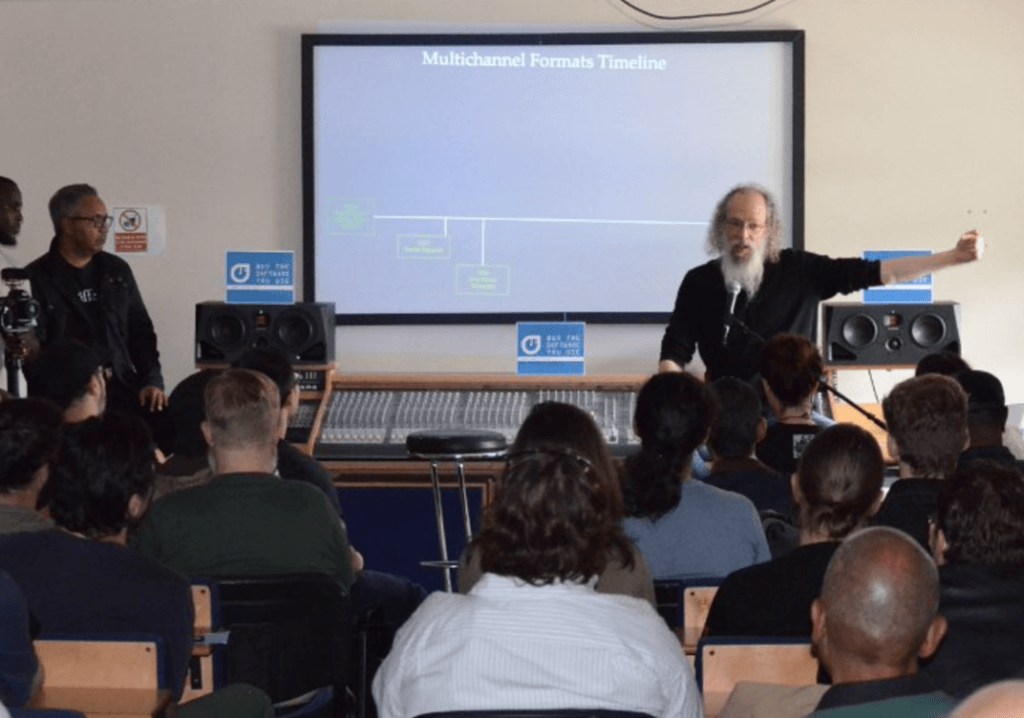
You don’t need perfect hearing to mix
No one has perfect hearing – and you don’t need it for mixing. My own ears ring and so far, so good.
You should also take regular breaks, don’t listen to playbacks at high volume for too long. If you have an issue with one ear, then swap the stereo playback sometimes.
Don’t beat yourself up about it either. Someone who is musical is way better at mixing than someone who is not.
It’s the ability to hear emotionally and make stuff that comes out of the speakers sound compelling. To do this, you need knowledge, to understand your tools really well and create sounds that people will like.
If you feel like you’re on the edge of a cliff, that’s when you get creative
David Bowie has this great quote about creativity. He said how he always wanted to feel like he was in deep enough water that his feet didn’t quite touch the bottom but he could still see the shore. You don’t think you’re going to die, but you’re not totally comfortable. That’s when you’re going to push things forward.
The amount of time invested in a project does not equate to its brilliance
If you’re working on something for a while, then you listen to it fresh and it doesn’t feel great and you’re not sure what to do, just move on to something else and come back to it later.
Just experiment like crazy when you’re not sure what to do instead of sitting terrified worrying about doing the wrong thing – there is no wrong thing.
Some of my best mixes were done really fast – others I spent a huge amount of time on and listening back now were not as good. Don’t worry when this happens – you need to just try new things.
Study Audio production at SAE
At SAE, our Audio Production Degree can help students learn the latest production skills and techniques to further their careers.
Our course encourages students to adopt a future-facing mindset where they are keen to understand more about how innovation and technology will shape the industry and their work.
Get in touch with our team to find out more.
Photo credits: IMSTA team





